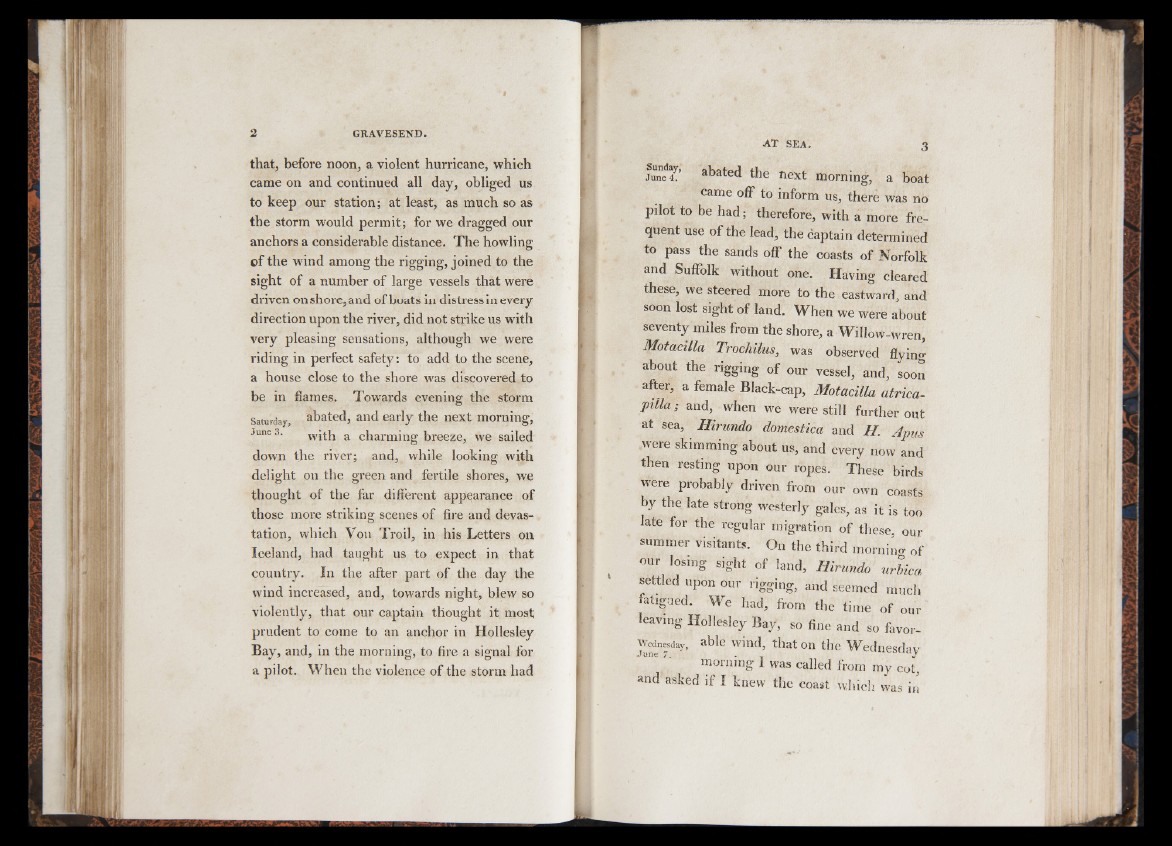
that, before noon, a violent hurricane, which
came on and continued all day, obliged us
to keep our station; at least, as much so as
the storm would permit; for we dragged our
anchors a considerable distance. The howling
of the wind among the rigging, joined to the
sight of a number of large vessels that were
driven on shore, and of boats in distress in every
direction upon the river, did not strike us with
very pleasing sensations, although we were
riding in perfect safety: to add to the scene,
a house close to the shore was discovered to
be in flames. Towards evening the storm
Saturday, abated, and early the next morning,
June 3. with a charming breeze, we sailed
down the river; and, while looking with
delight 011 the green and fertile shores, we
thought of the far different appearance of
those more striking scenes of fire and devastation,
which Von Troil, in his Letters on
Iceland, had taught us to expect in that
country. In the after part of the day the
wind increased, and, towards night, blew so
violently, that our captain thought it most
prudent to come to an anchor in Hollesley
Bay, and, in the morning, to fire a signal for
a pilot. When the violence of the storm had
June 4? ahated the next morning, a boat
came off to inform us, there was no
pilot to be had; therefore, with a more frequent
use of the lead, the captain determined
to pass the Sands off the coasts of Norfolk
and Suffolk without one. Having cleared
these, we steered more to the eastward, and
soon lost sight of land. When we were about
seventy miles from the shore, a Willow-wren,
Motacilla Trochilns, was observed flying
about the rigging of our vessel, and, soon
after, a female Black-cap, Motacilla atrica-
p illa ; and, when we were still further out
at sea, Hirundo domestica and II. Apus
were skimming about us, and every now and
then resting upon our ropes. These birds
were probably driven from our own coasts
by the late strong westerly gales, as it is too
late for the regular migration of these, our
summer visitants. On the third mornino- cf
our losing sight of land, Hirundo urbica
settled upon our rigging, and seemed much
fatigued. We had, from the time of our
leaving Hollesley Bay, so fine and so favor-
Wednesday, able wind, that on the Wednesday
morning I was called from my cot,
and asked if I knew the coast which was in